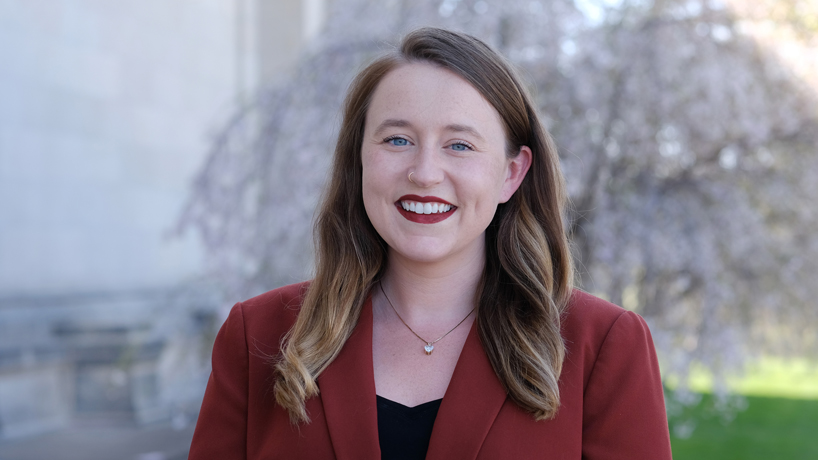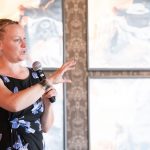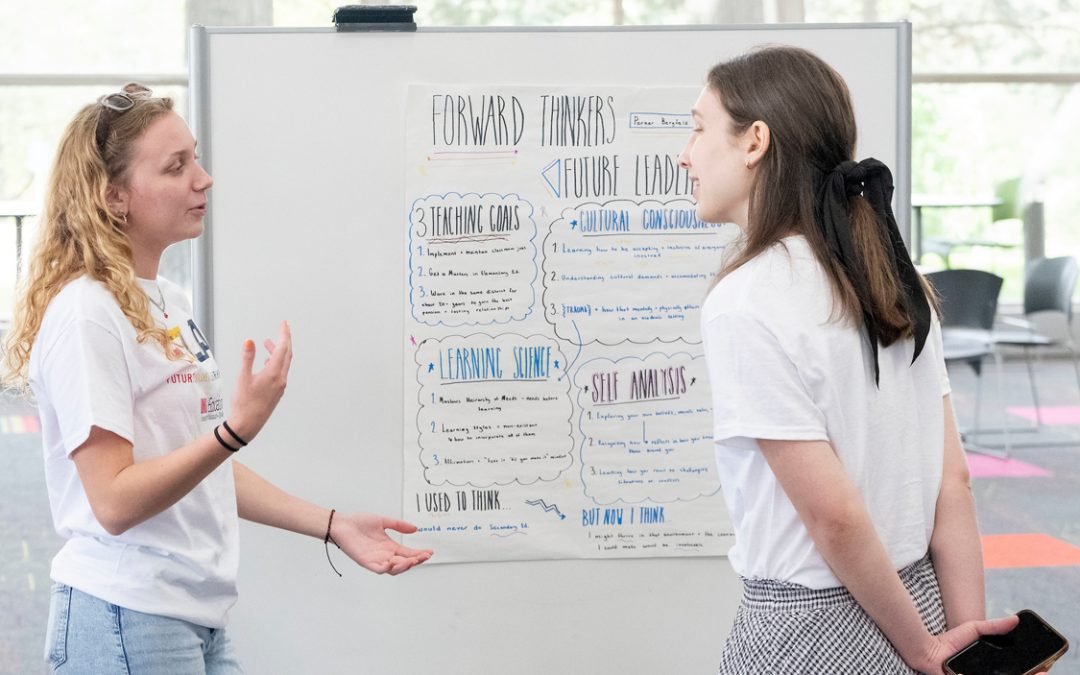
Samantha Babb will serve as the program director for the St. Louis Coro Fellows Program. Babb will help usher in the new cohort of Fellows who will begin their leadership development training in the program in August. (Photo by August Jennewein)
The St. Louis Coro Fellows Program has tapped Samantha Babb to serve as its full-time director following a nationwide search.
Babb is taking over leadership of the program, which relaunched last fall after a two-year hiatus. It is now operating out of the University of Missouri–St. Louis’ Community Innovation and Action Center, a non-academic department that, like the Coro Fellowship in Public Affairs, is committed to building powerful leaders, fostering effective institutions, supporting community partners and developing shared infrastructure and policy.
In her new role, Babb will help usher in the new cohort of Fellows who will begin their leadership development training in the program later this year.
“We’re excited to welcome Samantha back home to the St. Louis region to help lead the revival of the Coro Fellows Program,” said Paul Sorenson, the co-director of the Community Innovation and Action Center. “We look forward to watching her re-engage with old partners and establish new ones who can help us provide experiential training to a new generation of engaged leaders.
“These young people will in turn help us create a stronger, more vibrant and more equitable region.”
Babb was raised just across the Mississippi River in Belleville, Illinois. She earned a bachelor’s degree at Bradley University and a master’s degree at Clemson University. For the past five years, she’s served as a full-time, live-in staff member at Duke University, where she provided vision and oversight for the largest community of first-year students on campus.
In her time at Duke, Babb also helped found “Just Space,” an initiative aimed at exploring the intersections of places, spaces and social justice at Duke and in the Durham, North Carolina, area through education and implementation of the fair and equitable distribution of socially valued resources and opportunities to use them.
She was drawn to the chance to play a role in those issues closer to where she grew up.
“I was doing a lot of work around space and place, particularly as it pertains to socioeconomic status and racial equity, but then I would come home, fly into Lambert and drive to the East side through mass inequity,” Babb said. “I started to really think through what it would mean to be back here, doing that work in a place that I love, in a region that I want to see heal and grow and thrive. That’s what attracted me to this position.”
Babb wants to engage Fellows who will become just as invested in working to address some of St. Louis’ biggest challenges, particularly around inequality.
Part of her job will be to help a group of Fellows build relationships with each other as they simultaneously go out and learn through working with partner organizations in the St. Louis region.
“One of the core components of the Fellowship is the placements, which are like mini-internships,” said Matt Menietti, an alumnus of the St. Louis Coro Fellows program who now serves on its steering committee. “Coro Fellows deliver high-impact projects in six different sectors in the St. Louis region: government, nonprofit, business and labor as well as a group and an independent placement.
“The logic behind the placement structure is that cities function like complex systems. Take the recent mayoral race and engagement in the government sector. The incoming administration is going to have to work with the police union. It’s going to have to work with small businesses with COVID relief and nonprofits around health care or basic needs. Coro aims to give Fellows a holistic picture of how our region and our community works and gives them the tools and language to drive change.”
Formal offers will be sent later this month to approximately 12 Fellows who will make up St. Louis’ 2021-22 cohort. They’ll begin in August.
The Coro Fellowship lasts nine months with the participants collectively committing some 12,000 hours toward completing high-impact projects in dozens of organizations across the region. They will receive additional training – in areas such as general semantics and project management – interwoven with their on-site experiences.














